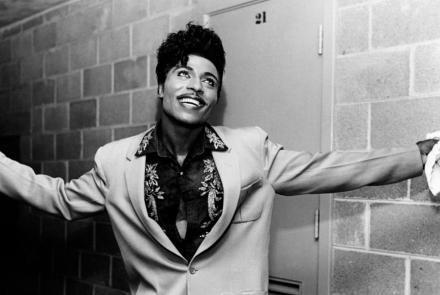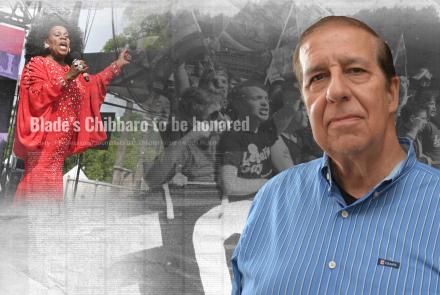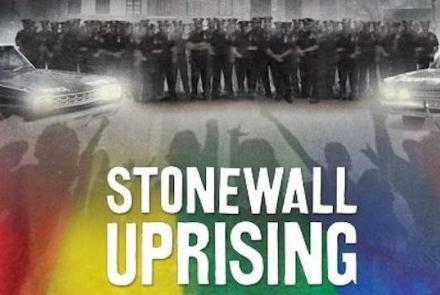WETA proudly celebrates Pride Month with a special lineup that highlights the rich culture and history the LGBTQIA+ community.
Throughout the broadcast year, the station is committed to presenting programs reflecting the diversity of our community.
Program Guide
Download a PDF of our LGBTQ+ Pride Month programming guide or explore specific channel offerings below.
All programs listed below will be airing on WETA PBS and WETA Metro. Check the schedule for additional information.

Groundbreakers
Friday, June 6 on WETA Metro
Celebrate 50 years of female excellence in sports through the eyes of athletes who changed the system. Hosted by sports icon and champion of equality Billie Jean King, the film weaves together eight athletes’ discussions of how their own struggles and achievements shaped women’s sports. Features Naomi Osaka, Jackie Joyner-Kersee, Chloe Kim, Nancy Lieberman, Suni Lee, Julie Foudy and Diana Flores.

American Masters: Little Richard – The King and Queen of Rock’n’Roll
Thursday, June 19 on WETA Metro
Experience the meteoric rise and enduring legacy of Little Richard. This portrait of the “King and Queen of Rock and Roll” explores his far-reaching influence as well as his advocacy for the rights of Black artists in the music industry.

American Masters: Janis Ian – Breaking the Silence
Friday, June 20 on WETA PBS and WETA Metro
Discover the life of singer-songwriter Janis Ian and how she rose as a folk icon and gay rights advocate. She broke ground with “Society’s Child” (1966), a bold take on interracial love, and “At Seventeen” (1975), a searing anthem about bullying.

Disco: Soundtrack of a Revolution
Saturday, June 21 on WETA PBS
From the basement bars of ‘70s New York to the peak of the global charts, this is the story of disco: its rise, its fall... and its legacy. Revelling in iconic tracks and remarkable footage, this is a powerful, revisionist history of the disco age.

Lou’s Legacy: A Reporter’s Life at the Washington Blade
Saturday, June 21 on WETA PBS
Lou’s Legacy: A Reporter’s Life at the Washington Blade tells the story of two DC icons—legendary journalist Lou Chibbaro Jr. and beloved drag performer Donnell Robinson, aka Ella Fitzgerald. Through Lou’s nearly five-decade career at the Blade and Ella’s return to the stage after three years away because of Covid, the documentary explores the history of DC’s gay community and today’s rising backlash against LGBTQ rights, including laws targeting drag performers.

American Experience: Stonewall Uprising
Saturday, June 21 on WETA PBS
In the early morning hours of June 28, 1969 police raided the Stonewall Inn, a popular gay bar in the Greenwich Village section of New York City. That night the street erupted into violent protests and street demonstrations that lasted for the next three days. The Stonewall riots marked a major turning point in the modern gay civil rights movement in the United States and around the world.

American Masters: LIZA: A Truly Terrific Absolutely True Story
Saturday, June 28 on WETA PBS
Take an intimate look into the life of Liza Minnelli, best known for her Oscar-winning role in Cabaret. Following in the footsteps of her mother Judy Garland, Minnelli used her boundless raw talent to build her own legacy in showbiz.
